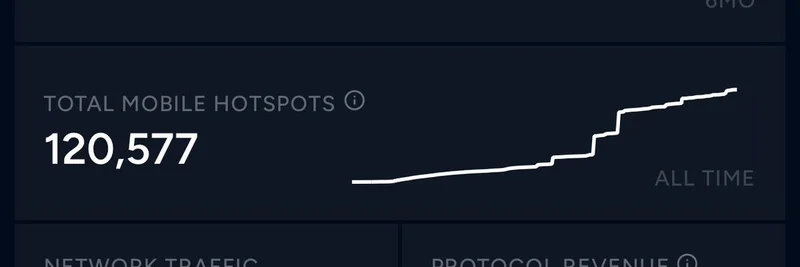The crypto world is buzzing after Zcash's impressive 5x surge, turning heads and sparking conversations about privacy in blockchain. In a recent episode of The Chopping Block podcast, hosted by industry insiders Haseeb Qureshi, Robert Leshner, Tarun Chitra, and Tom Schmidt, they brought on Mert from Helius Labs to dive deep into this and other hot topics. If you're into meme tokens or just keeping up with blockchain tech, this discussion offers some fresh perspectives on how privacy could shake things up.
The episode kicks off with a nod to Zcash's wild ride, joking that everyone's suddenly a "privacy expert." Mert, known for his work on Solana and now dipping into Zcash, shares his journey and insights. Let's break down the key segments based on the timestamps provided.
Mert: The Madman of Solana and Now Zcash
Starting at 01:22, the hosts introduce Mert as a key figure who's bridged Solana's high-speed ecosystem with Zcash's privacy focus. For those new to this, Solana is a blockchain known for fast transactions and low fees, often home to viral meme tokens like those dog-themed coins that pop up overnight. Zcash, on the other hand, uses zero-knowledge proofs—think of it as a way to verify transactions without revealing details like amounts or addresses. Mert explains his shift, highlighting how privacy tech could enhance platforms like Solana, potentially making meme token trading more secure and anonymous.
Bitcoin vs. Zcash: A Philosophical Clash
From 05:20, the conversation turns philosophical. Bitcoin is the OG crypto, transparent by design, where every transaction is public on the blockchain. Zcash flips that script with optional privacy features. The panel debates whether privacy is a must-have for mass adoption or a niche for those dodging scrutiny. In the meme token space, this could mean creators and traders operating with less exposure, reducing risks from hacks or doxxing. Mert argues that as regulations tighten, privacy coins like Zcash might become essential tools for everyday users.
Tempo Fundraise and Ethereum's Talent Exodus
Jumping to 14:35, they tackle Tempo's eye-popping ~$5B valuation in a recent fundraise. Tempo, if you're scratching your head, is likely referring to a crypto project or fund—possibly a play on timing in DeFi or something new in the space (details are emerging, but it's big news). Tied to this is Dankrad Feist's exit from Ethereum Foundation. Dankrad is a key researcher behind Ethereum's scaling tech like danksharding, which aims to make the network cheaper and faster for things like meme token launches. The discussion explores why top talent is leaving Ethereum for other chains, and what that means for innovation. For meme enthusiasts, this could signal shifts in where the next big pumps happen—maybe more on Solana or even Zcash-integrated platforms.
Ethereum's Social Layer and Public Goods
At 33:05, the talk shifts to Ethereum's "social layer," which is basically the community and norms around it, versus pure profit motives. Public goods in crypto refer to open-source tools and protocols that benefit everyone, like free wallets or explorers, often funded by grants rather than VCs. The panel weighs if Ethereum's focus on these is holding it back compared to more profit-driven chains. Mert chimes in on how this balance affects development, potentially impacting meme token ecosystems that thrive on community hype.
Religious Priesthood in Crypto
This segment at 34:45 gets metaphorical, comparing crypto communities to religious groups with their "priesthoods"—think influential devs or founders who set the doctrine. It's a fun take on tribalism in blockchain, like Bitcoin maxis versus Ethereum builders. For meme tokens, this resonates with how cults form around certain coins, driving prices through sheer belief and memes.
USDmanlet Proposal and Stablecoin Coordination
From 41:01, they discuss the "USDmanlet" proposal—sounds like a cheeky name for a stablecoin idea, perhaps a dwarf-themed meme or a serious coord proposal for better stablecoin interoperability. Stablecoins are cryptocurrencies pegged to fiat like USD, crucial for trading meme tokens without wild volatility. The chat covers coordination challenges and how better standards could stabilize the market.
AWS Outage and Its Impact on Crypto
Wrapping up at 49:32, the episode covers the recent AWS outage affecting Base, Coinbase's Ethereum Layer 2 chain. AWS is Amazon's cloud service, powering much of the internet, including crypto infra. When it goes down, transactions halt, and meme token snipers miss out. The panel analyzes the fallout and why decentralized alternatives are key to resilience.
Overall, this episode is a goldmine for anyone tracking crypto trends, especially with Zcash's surge hinting at a privacy meta in memes and beyond. If privacy tech integrates with meme platforms, we could see a new wave of anonymous launches and trades. Check out the full episode on YouTube, Spotify, or Apple Podcasts, and follow @_choppingblock for more.
Stay tuned to Meme Insider for more breakdowns on how these trends affect your favorite meme tokens!


